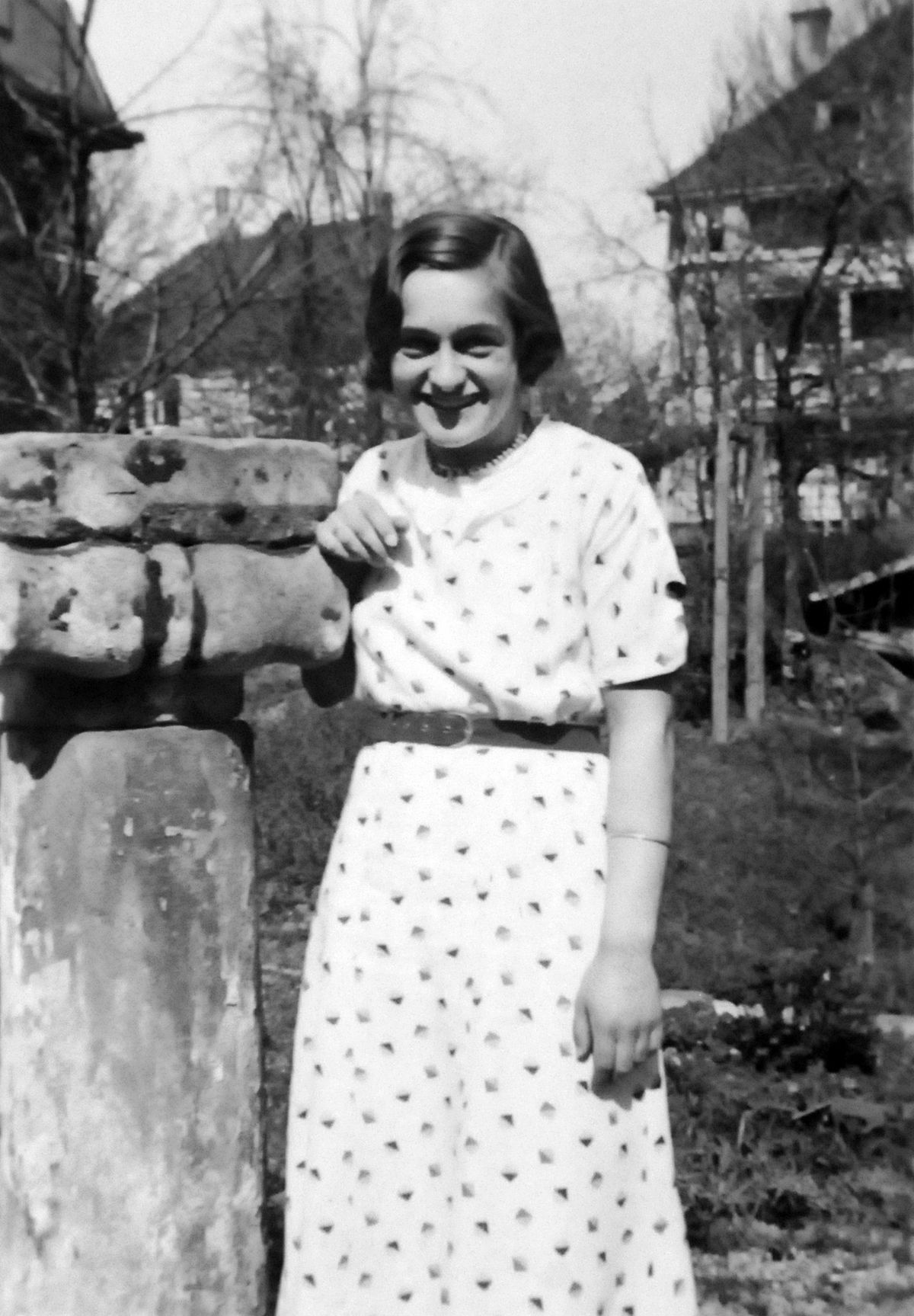Rescued from tyranny
Woman saved from Nazis shares her story

Although their own lives were at stake, several German families defied the Nazis to help save Miriam Abramowitz-Ferszt.
People in a rural area near Munich took her in with her mother and little sister during World War II. They knew her family was Jewish and had false papers but did not turn them in to the Nazis. They helped them by sharing food and supplies.
“I lived from hour to hour,” Abramowitz-Ferszt says. “We were always scared and looked over our shoulder all the time. When there is war all around, you just hope that you survive.”
She was 19 when the war began in 1939. Now 88 and living in Cheney, she will share her experience Sunday on Yom HaShoah, the international day of remembrance of the Holocaust.
As part of that evening’s ceremony at Temple Beth Shalom, Abramowitz-Ferszt will present a commemorative keepsake to the winner of the annual creative writing contest.
Until recently, she talked little about her experience. But when Mary Noble, an organizer of the local Yom HaShoah observance, asked her to take part this year, Abramowitz-Ferszt knew she had to accept the invitation.
“It’s a way to help others become aware,” she says.
Born in Munich in 1920, she experienced a “wonderful childhood” before the war, living in a rural area outside the Bavarian capital. When she was 8, her family moved back to Munich so she could attend a better school.
Like many Jews, they didn’t think they were vulnerable because they saw themselves as German and assimilated into the mainstream culture.
In 1933, her parents became more conscious of the growing prejudice against Jewish people. Her father, Joseph Weiglein, made plans to retire from his courthouse job and move his family to Africa.
Six months later, he died suddenly of a heart attack at age 41. Miriam was 13 and her sister, Gertie, was 5.
Just before her father’s death, Abramowitz-Ferszt was kicked out of the private school she attended because she was Jewish. It was the first time she realized she was not safe.
She later worked as a courthouse clerk, but was fired after it was discovered she was a Jew. In 1938, the synagogue in Munich was burned down.
Among those who helped save Abramowitz-Ferszt’s family were Felix and Ida Hensel, whom they called “uncle” and “aunt” though they weren’t related.
Felix, a regional salesman for an Austrian steel company, hired her to work in his office. He took care of her family, especially Gertie, who had a more difficult time passing as a non-Jew. For a while, Gertie lived with the Hensels and worked as a maid.
The couple also helped the family acquire false papers including passports without the “J,” which saved them from concentration camps.
Part of the time, the girls and their mother, Ellie Weiglein, lived with an acquaintance in a rural area outside Munich. Air raids bombed Munich and major cities, so many people, especially families with children, escaped to the countryside.
Another “aunt” who helped shelter the family for a while was a woman named Mitzi, an actress who lived alone on a farm. She and Weiglein were friends before the war, and Abramowitz-Ferszt was born in Mitzi’s house.
Abramowitz-Ferszt did all she could to prevent her identity from being discovered. She kept her mouth shut and refrained from joining in political discussions.
She did, however, become more aware of people helping Jews. She socialized with a man who sold washing machines and learned he was part of the underground that provided food and supplies to Jews.
She knew Jews were being rounded up and taken to a concentration camp, but she didn’t realize it was Dachau, 10 miles from Munich.
“At the time, we didn’t know what was happening,” she says. “I saw people from the concentration camps work on the railroad, but what could we do? Nothing.”
She married her first husband in 1947; their daughter, Gabriel (“Gabby” for short), was born the following year.
In 1948, Abramowitz-Ferszt applied to emigrate to the United States. Her husband, mother and sister came in 1949. In July 1950, she and Gabby joined them.
After divorcing, she married again and her son, Armand, was born in 1956.
After her second husband died of a heart attack in 1959, Abramowitz-Ferszt, her mother and her two children moved to Los Angeles. Disenchanted with the smog and traffic, they moved in 1965 to Pocatello, Idaho, where they had friends, and where there was a Jewish temple.
Gabby moved to Cheney in 1976, and the rest of the family followed two years later. Abramowitz-Ferszt worked as a travel agent until she retired at age 75.
In 1990, she met David Ferszt, the widowed father-in-law of Rabbi Jack Izakson of Temple Beth Shalom. They married in 1998; David died in 2002.
Like many people who lived through the atrocities of Nazi Germany, she and David, who survived Auschwitz, didn’t talk much about their experiences. He was one of 10 children; only three survived.
Last year, during a trip to Europe, Abramowitz-Ferszt visited Auschwitz and was moved by the fact that thousands of people continue to go to the site where 3 million Jews were murdered.
“They want to know, they want to remember,” she says. “What happened should never be forgotten. It must be taught in our schools. …
“Jews have always been persecuted and chased out, and those who say it didn’t happen must be out of their minds.”